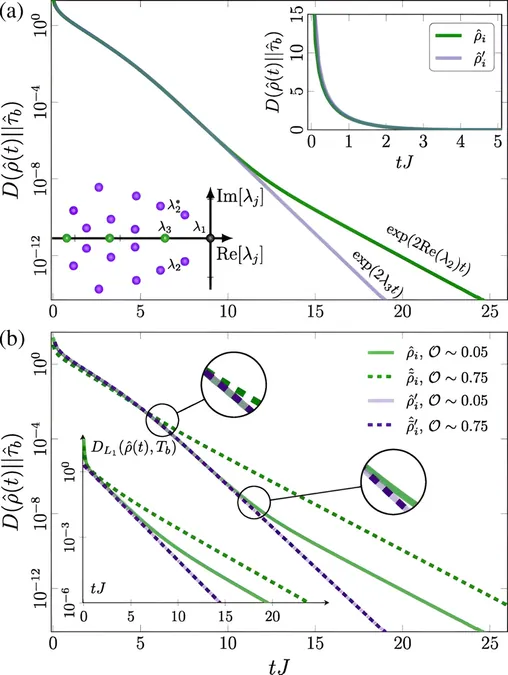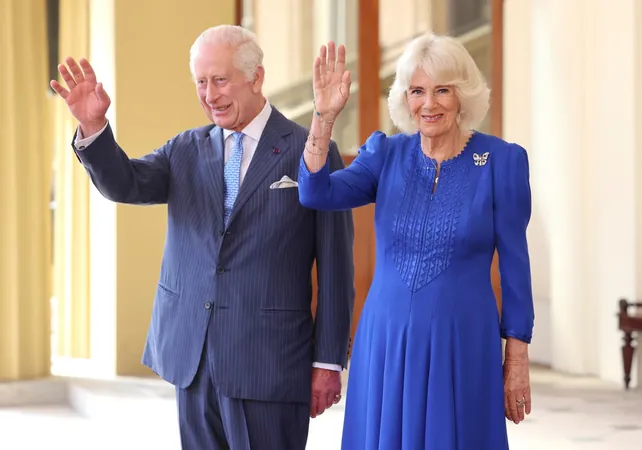
Quantum Breakthrough: Scientists Reveal the Mpemba Effect's Hidden Secrets with Amazing Applications!
2024-10-08
Author: Jessica Wong
Introduction
In a remarkable intersection of ancient philosophy and modern science, a dedicated team of physicists has unveiled a groundbreaking perspective on the curious phenomenon known as the Mpemba effect—the counterintuitive observation that hot water can freeze faster than cold water. This discovery not only sheds light on a perplexing scientific enigma but also paves the way for innovative applications in the fields of quantum physics and thermodynamics.
Historical Context
Dating back over two millennia, the Mpemba effect was first noted by the philosopher Aristotle, who observed that ancient Greeks in Pontus utilized this curious property in their fishing endeavors. The effect has continued to intrigue great scientific minds throughout history, including René Descartes and Francis Bacon. More recently, it has captured popular imagination, even appearing in cooking competitions like MasterChef, where contestants strive to utilize this phenomenon to achieve remarkable results in dessert challenges.
Recent Discoveries
The Trinity QuSys research team, led by physicist Professor John Goold, has recently published an influential paper in the prestigious journal Physical Review Letters, revealing their significant advancements in understanding the Mpemba effect within the realm of quantum physics. Professor Goold elaborates, "The effect is named after Erasto Mpemba, who famously discovered it as a schoolboy in 1963 while making ice cream in Tanzania. Despite initial skepticism from his teacher, his findings were validated through rigorous experimentation and scholarly publication."
Quantum Perspective
While the Mpemba effect remains a topic of debate on a macroscopic scale, it becomes increasingly observable in the microscopic world governed by quantum mechanics. The recent excitement surrounding the quantum Mpemba effect has raised numerous questions about its connection to the classical effect, as well as the possibility of constructing a framework for better comprehension.
Research Insights
The QuSys team's innovative research offers valuable insights into these queries. They specialize in the interplay between non-equilibrium thermodynamics and quantum theory, equipping them with the necessary tools to effectively tackle these complex issues. "Our work provides a systematic approach for generating the Mpemba effect in quantum systems, demonstrating that a physical transformation can ironically lead to a quantum system cooling exponentially faster," Professor Goold explains.
Future Applications
This groundbreaking research bridges the gap between Aristotle's ancient observations and contemporary quantum mechanics, opening a myriad of exciting avenues for future exploration and technological applications. With their findings, the term "cool" takes on new dimensions—both in the literal sense of temperature and in terms of potential breakthroughs in quantum computing and energy-efficient technologies.
Conclusion
As the team continues their work, Professor Goold emphasizes the broader impacts of their research: "While our initial motivation stemmed from intellectual curiosity, this project has unveiled fundamental questions about the relationships between thermodynamic laws and quantum reality. Our ongoing study includes developing a geometrical approach to unify different types of the Mpemba effect within a cohesive mathematical framework."
Significance
In summary, this profound intersection of ancient wisdom and cutting-edge science not only unravels mysteries that have baffled humanity for centuries but also spotlights the remarkable potential of quantum physics to revolutionize our understanding of the natural world and our technological future. Will we soon harness the secrets of the Mpemba effect to innovate how we approach energy consumption and refrigeration? The possibilities are boundless!



 Brasil (PT)
Brasil (PT)
 Canada (EN)
Canada (EN)
 Chile (ES)
Chile (ES)
 España (ES)
España (ES)
 France (FR)
France (FR)
 Hong Kong (EN)
Hong Kong (EN)
 Italia (IT)
Italia (IT)
 日本 (JA)
日本 (JA)
 Magyarország (HU)
Magyarország (HU)
 Norge (NO)
Norge (NO)
 Polska (PL)
Polska (PL)
 Schweiz (DE)
Schweiz (DE)
 Singapore (EN)
Singapore (EN)
 Sverige (SV)
Sverige (SV)
 Suomi (FI)
Suomi (FI)
 Türkiye (TR)
Türkiye (TR)